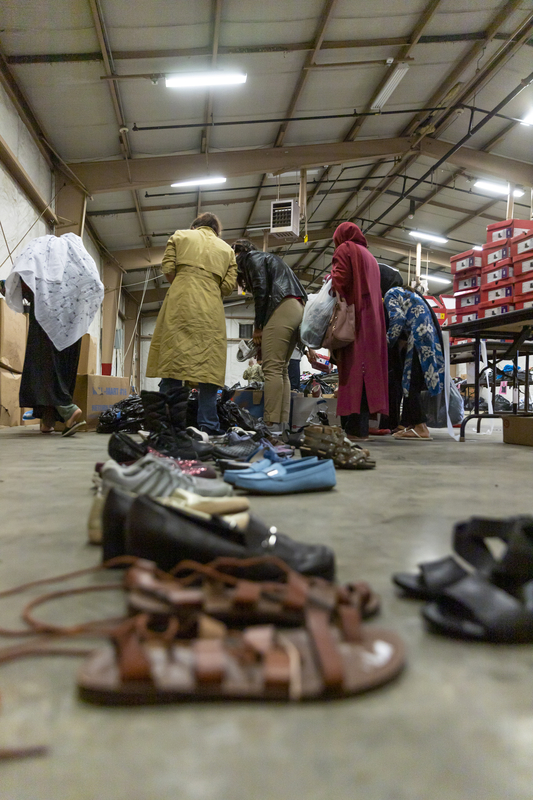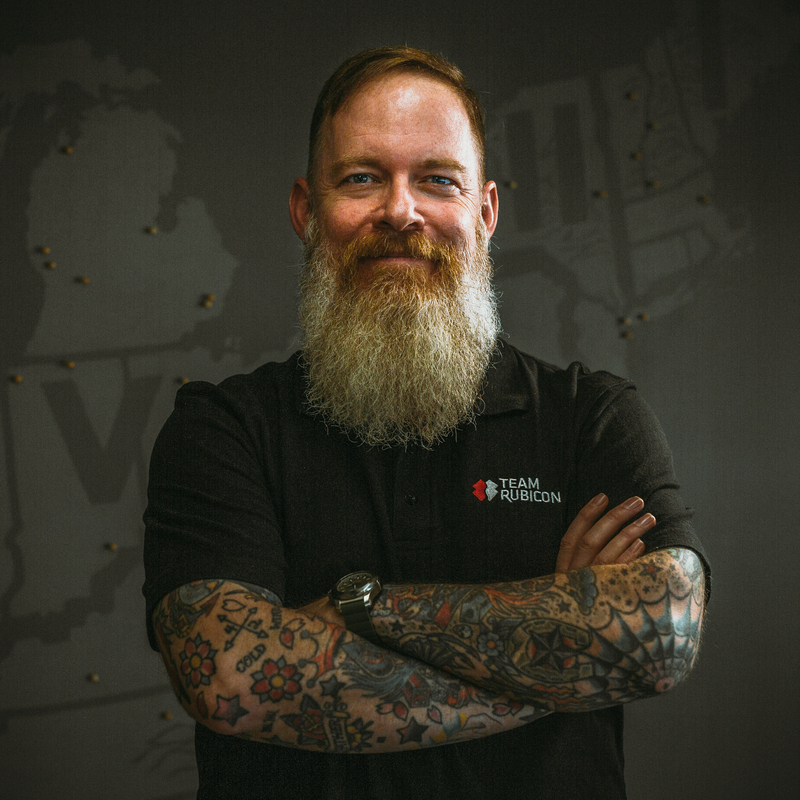When I first arrived at New Jersey’s Joint Base McGuire-Dix-Lakehurst in late August, I had no idea what to expect. The country had just launched a massive effort to safely relocate tens of thousands of Afghan people and one of the places they would land would be New Jersey. Meeting with State Dept and Department of Defense officials, I was asked simply by the Defense Coordinating Officer, “Can Team Rubicon help?”
“Yes sir,” I replied not knowing how we’d make it work but knowing that our teams always find a way.

Within hours our volunteer leaders and supporting staff were launching into action to deploy Greyshirts on the first of a new type of response for Team Rubicon: responding to an international humanitarian crisis that was being brought to our doorstep.
At the time of that request, there were already roughly 700 Afghans at Joint Base McGuire-Dix-Lakehurst. That first day on the base, I watched as several busloads of Afghan guests arrived and were welcomed. Among the several hundred people disembarking those buses, there was only a handful of backpacks and even fewer suitcases. Most people only had the clothes on their backs.
That day I spent time with the matriarch of a family of around 20 who had arrived together. They were exhausted, weary, and scared as to what the future held. Two of her sons had worked as interpreters for the U.S. over the years, and while half of the family had never planned on leaving the country they now had no choice. The Taliban knew they had supported the Americans. They were targets. The whole family had to flee for their own safety.
The littlest ones clung to her traditional garb as she spoke to me softly. As her son interpreted, she told me how they had lost two family members to violence in Afghanistan the month prior—killed, as they worked to leave—and how the surviving family members had been stripped of all valuables as they made their way to the airport.
As I listened to her story, my heart broke. I knew that our ability to contribute in any way to the mission at hand could positively impact her and her family, and so many more. I was proud to be able to step up and give back to a people who lost so much in service of our country. I was so grateful to be able to give something back as we began our operations.
Fast forward three weeks and, as I walked across JBMDL the sorting area, where we were putting together donations for distribution to the Afghan families, I spotted that matriarch sitting in the sun on the grass. She was watching as her grandson played soccer with other boys, a world away from the turmoil they had left. She looked happy and hopeful. We shared a hug and I went back to our work, knowing full well of the impact our volunteers had made on so many people who had arrived at this base with nothing but the clothes on their backs, but who would leave with enough to see them thru the winter, plus a future free from persecution and terror.




